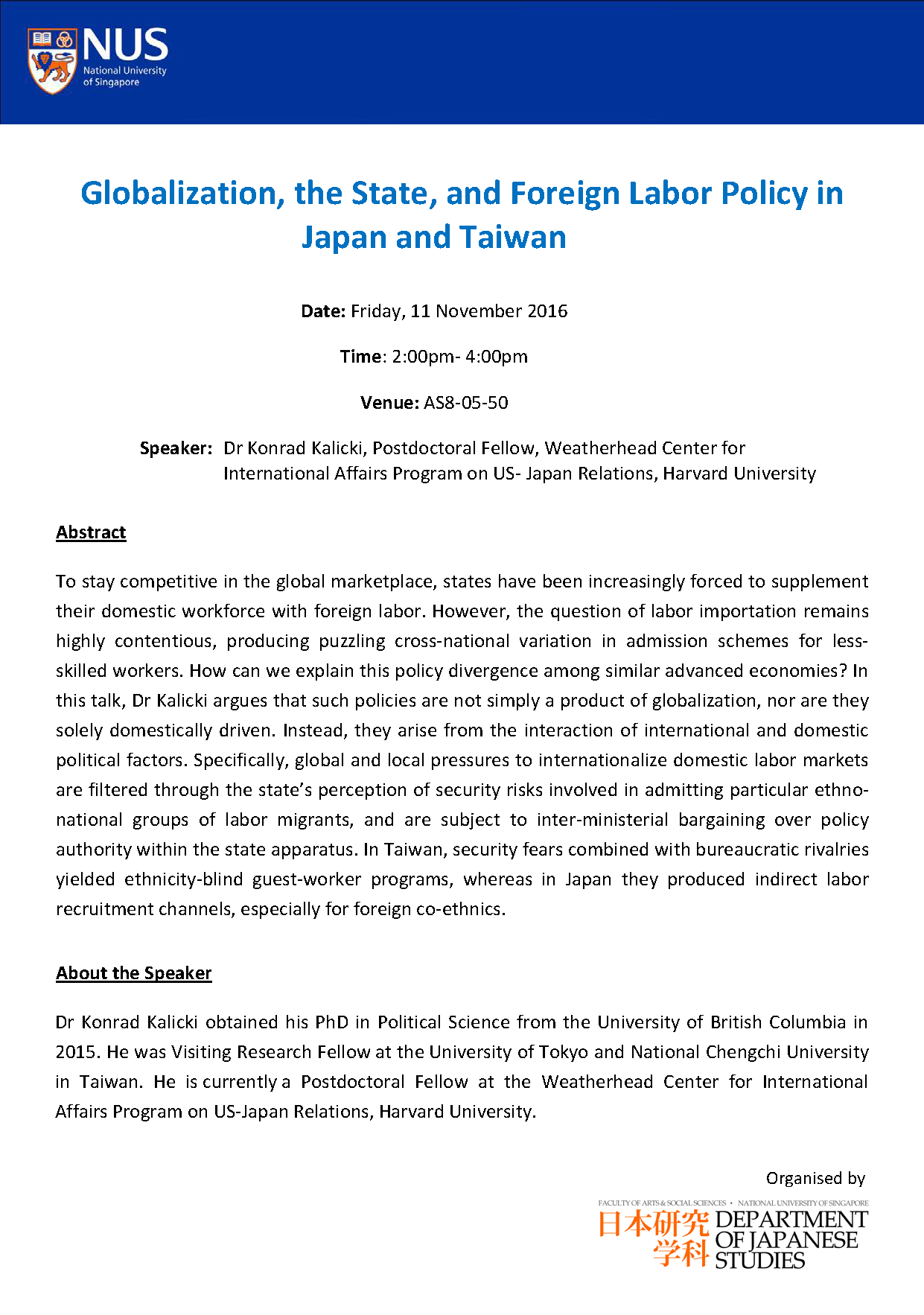Globalization, the State, and Foreign Labor Policy in Japan and Taiwan
Abstract
To stay competitive in the global marketplace, states have been increasingly forced to supplement their domestic workforce with foreign labor. However, the question of labor importation remains highly contentious, producing puzzling cross-national variation in admission schemes for lessskilled workers. How can we explain this policy divergence among similar advanced economies? In this talk, Dr Kalicki argues that such policies are not simply a product of globalization, nor are they solely domestically driven. Instead, they arise from the interaction of international and domestic political factors. Specifically, global and local pressures to internationalize domestic labor markets are filtered through the state’s perception of security risks involved in admitting particular ethnonational groups of labor migrants, and are subject to inter-ministerial bargaining over policy authority within the state apparatus. In Taiwan, security fears combined with bureaucratic rivalries yielded ethnicity-blind guest-worker programs, whereas in Japan they produced indirect labor recruitment channels, especially for foreign co-ethnics.
About the Speaker
Dr Konrad Kalicki obtained his PhD in Political Science from the University of British Columbia in 2015. He was Visiting Research Fellow at the University of Tokyo and National Chengchi University in Taiwan. He is currently a Postdoctoral Fellow at the Weatherhead Center for International Affairs Program on US-Japan Relations, Harvard University.


